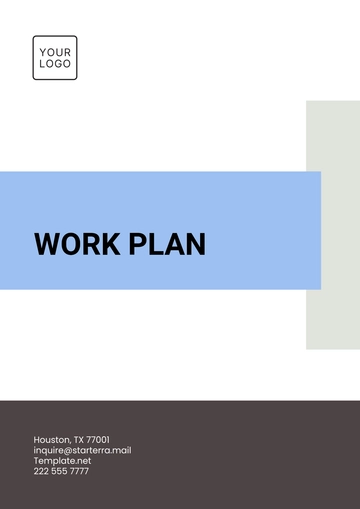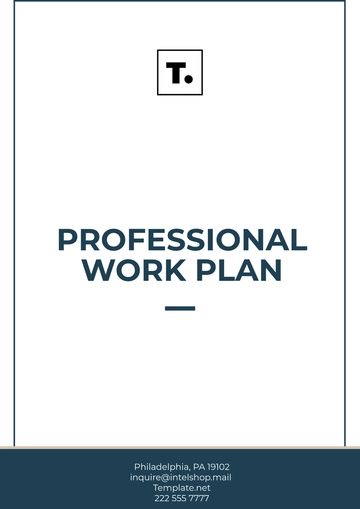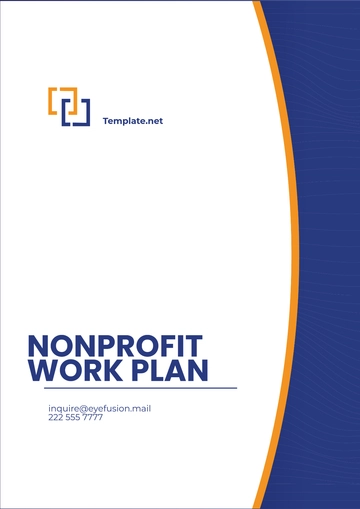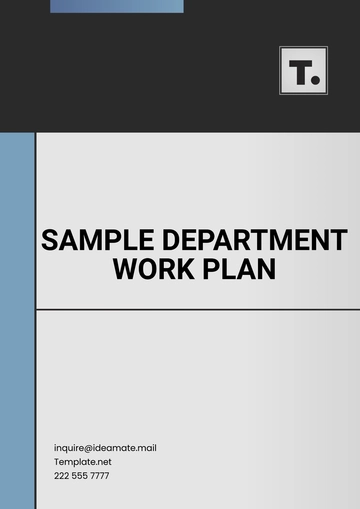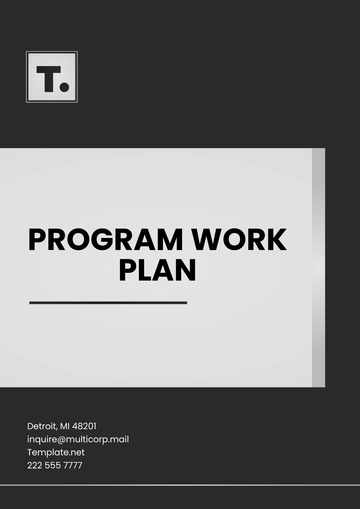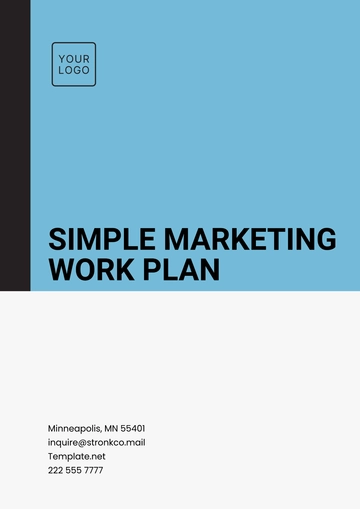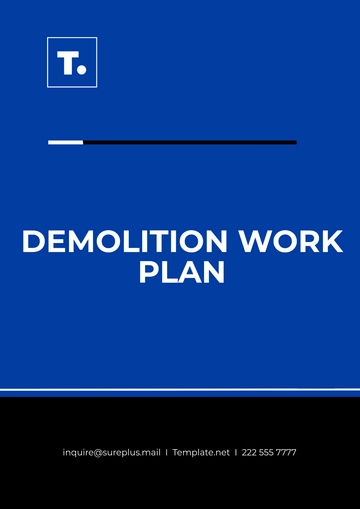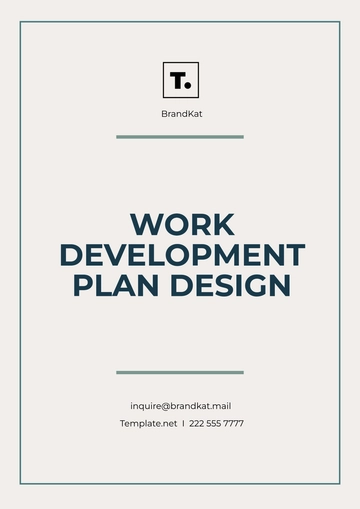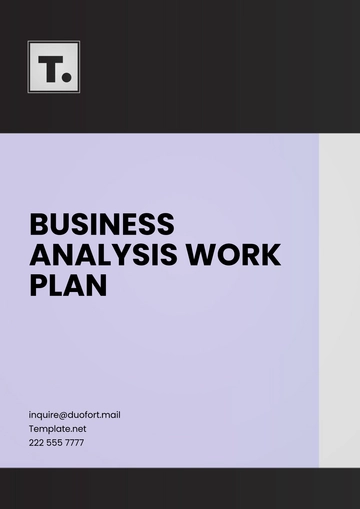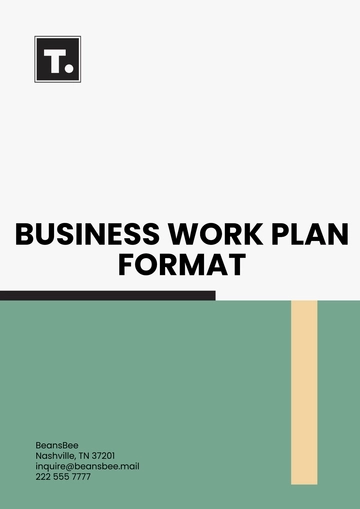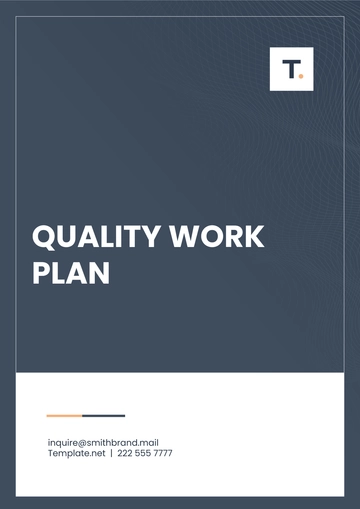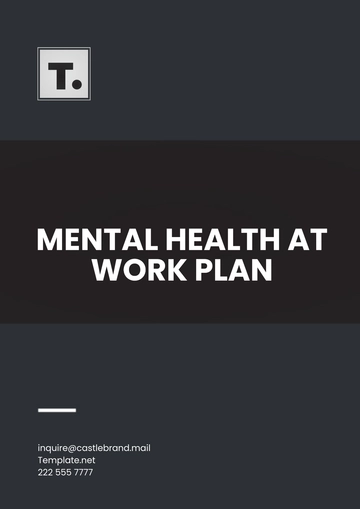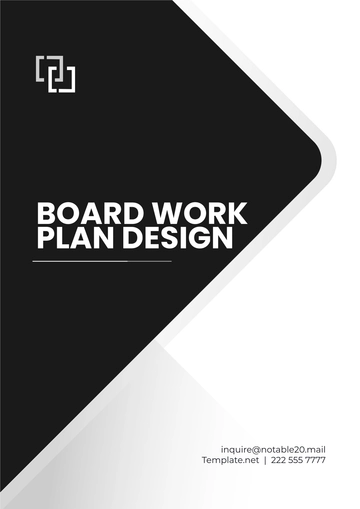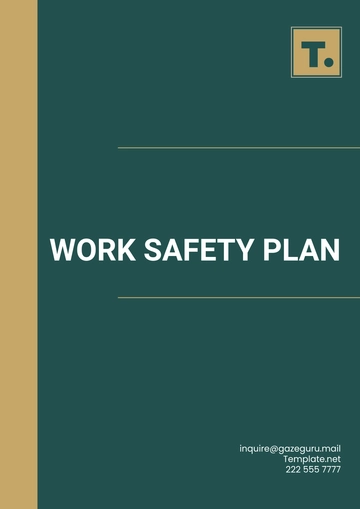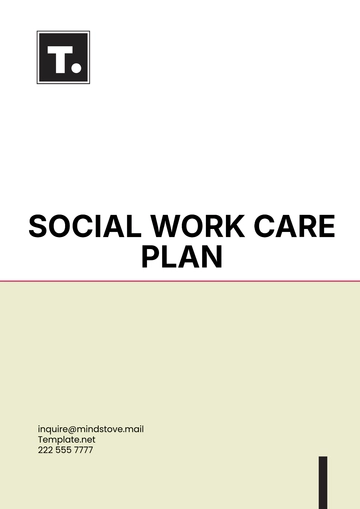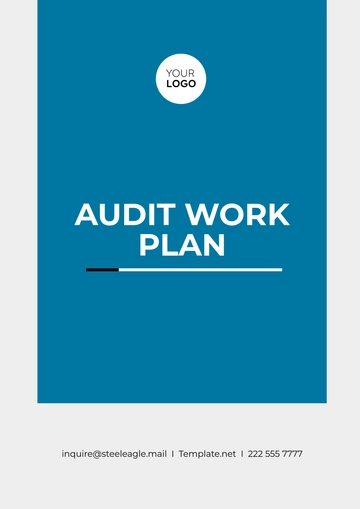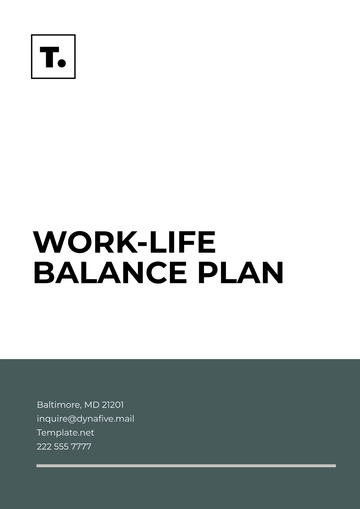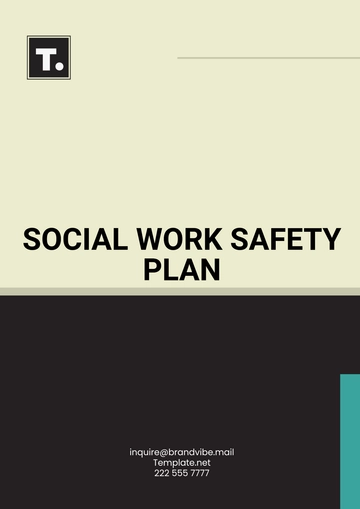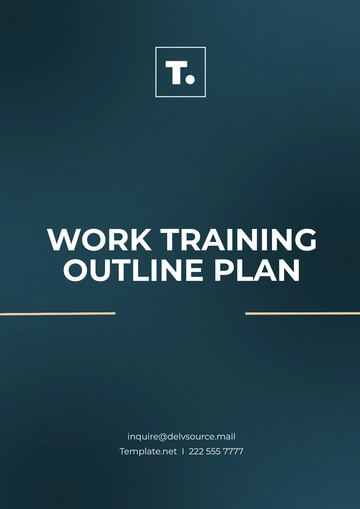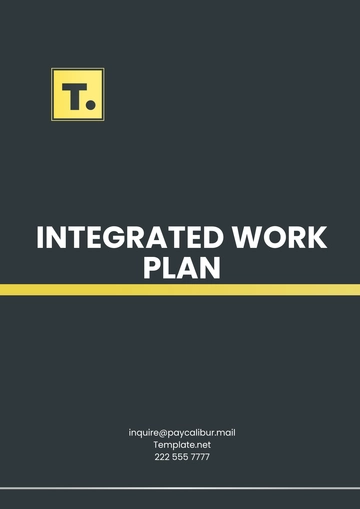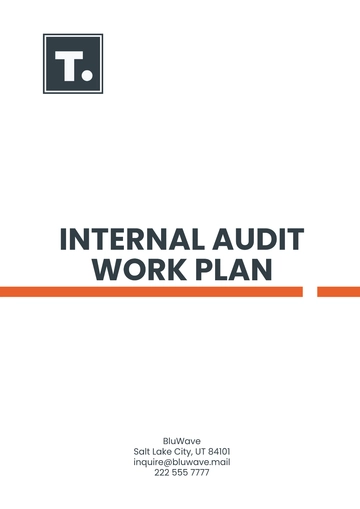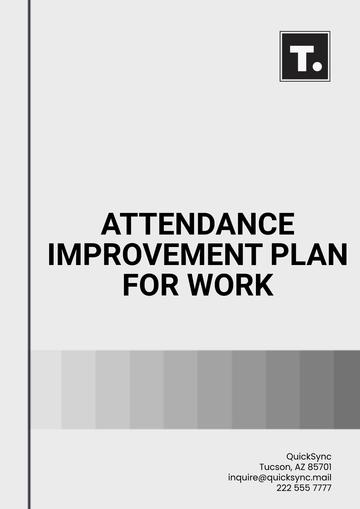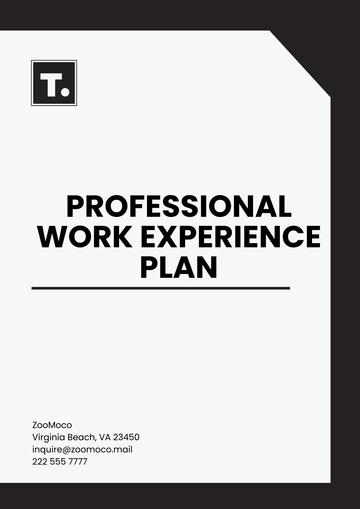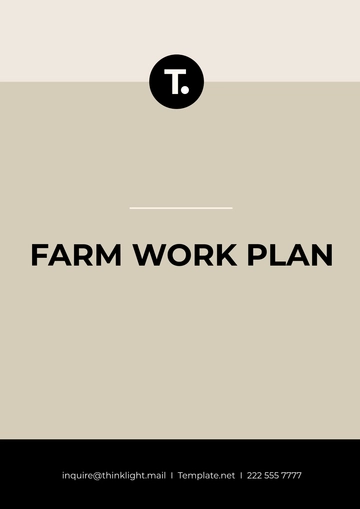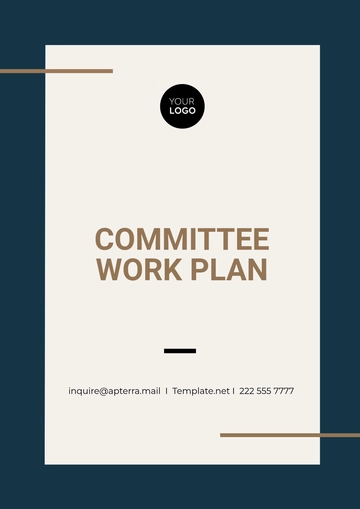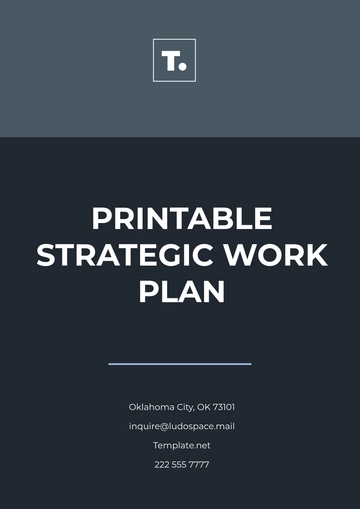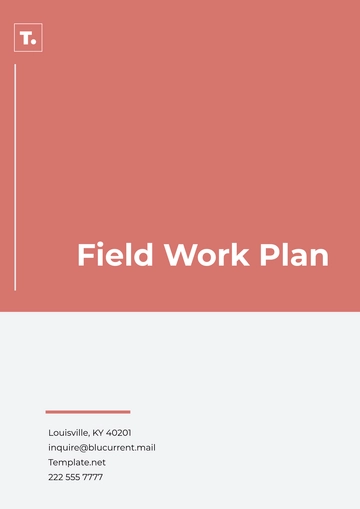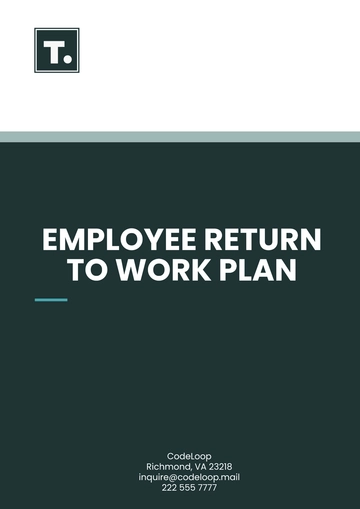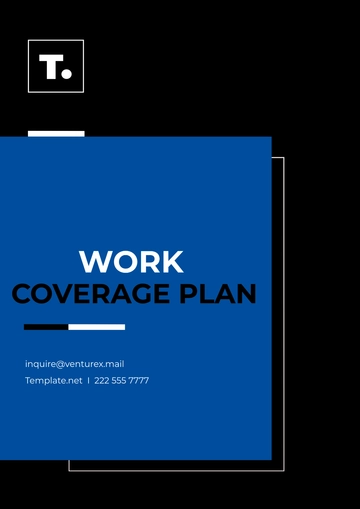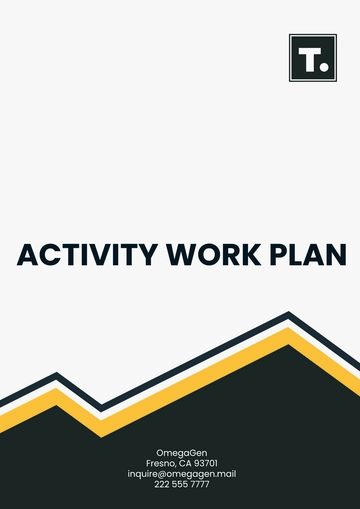Free Detailed Work Plan
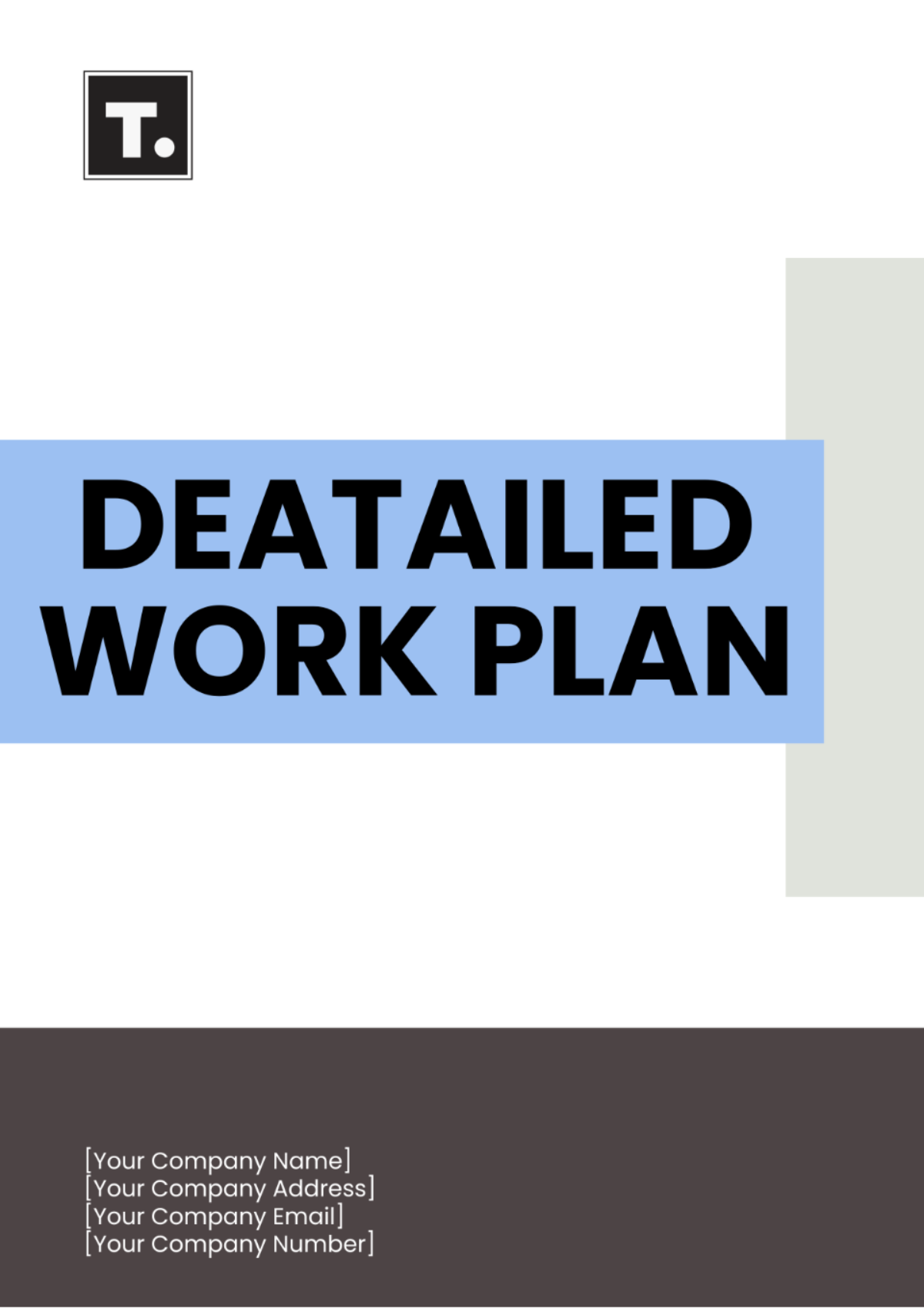
Prepared by: [YOUR NAME]
Website: [YOUR COMPANY WEBSITE]
Social Media: [YOUR COMPANY SOCIAL MEDIA]
I. Project Overview
This section provides a high-level summary of the Future Sustainable City Initiative project, including its objectives, scope, and key stakeholders. It serves as a reference point for understanding the project's purpose and desired outcomes.
1. Project Title: Future Sustainable City Initiative
Objective: Implement sustainable practices in urban development.
Scope: Develop green infrastructure and promote eco-friendly policies.
Stakeholders: City Council, Environmental NGOs, Urban Planners.
2. Project Background
Context: Growing concerns about climate change and urban sustainability.
Purpose: Create a model city showcasing eco-friendly living and urban design.
Challenges: Limited resources, public awareness, and regulatory hurdles.
II. Work Breakdown Structure (WBS)
1. Phase 1: Planning
Task 1: Conduct an environmental impact assessment.
Subtask 1.1: Identify potential sites for green infrastructure.
Subtask 1.2: Analyze feasibility and regulatory requirements.
Task 2: Develop sustainable development guidelines.
Subtask 2.1: Engage stakeholders for input and feedback.
Subtask 2.2: Draft policies and guidelines for implementation.
2. Phase 2: Execution
Task 3: Implement pilot green infrastructure projects.
Subtask 3.1: Procure materials and resources.
Subtask 3.2: Collaborate with contractors for construction.
Task 4: Launch public awareness campaigns.
Subtask 4.1: Design marketing materials and educational programs.
Subtask 4.2: Organize community events and workshops.
III. Timeline and Milestones
1. Timeline
Start Date: January 1, 2050
End Date: December 31, 2052
Duration: 3 years
2. Milestones
Milestone 1: Completion of environmental impact assessment.
Due Date: March 15, 2050
Milestone 2: Launch of pilot green projects.
Due Date: June 30, 2051
IV. Resource Allocation
1. Human Resources
Role 1: Environmental Engineer
Responsibilities: Conducting assessments and overseeing green projects.
Skills Required: Environmental science, project management.
Role 2: Community Outreach Coordinator
Responsibilities: Engaging the public and organizing events.
Skills Required: Communication, event planning.
2. Material Resources
Equipment: Soil testing kits, solar panels, water recycling systems.
Materials: Recycled building materials, and eco-friendly landscaping supplies.
V. Dependencies and Risks
1. Dependencies
Task Dependency: Availability of regulatory approvals for pilot projects.
Impact: Delay in project execution and increased costs.
2. Risks
Risk 1: Funding constraints for large-scale implementation.
Likelihood: Medium
Impact: High, may delay project milestones.
Risk 2: Public resistance to new eco-friendly policies.
Likelihood: Low
Impact: Moderate, requires effective communication strategies.
VI. Communication Plan
1. Communication Channels
Meetings: Monthly project updates with stakeholders.
Email Updates: Bi-weekly progress reports to the project team.
Project Dashboard: Online portal for real-time project tracking.
2. Stakeholder Engagement
Key Stakeholders: City Council members, Environmental NGOs.
Preferred Communication Method: Quarterly town hall meetings and email updates.
VII. Monitoring and Evaluation
1. Performance Metrics
Key Performance Indicators (KPIs): Greenhouse gas reduction, community engagement levels.
Performance Targets: 20% reduction in emissions by 2052, 80% public awareness.
2. Evaluation Criteria
Quality Standards: Compliance with sustainable development guidelines.
Customer Satisfaction: Feedback surveys from residents and stakeholders.
- 100% Customizable, free editor
- Access 1 Million+ Templates, photo’s & graphics
- Download or share as a template
- Click and replace photos, graphics, text, backgrounds
- Resize, crop, AI write & more
- Access advanced editor
Plan tasks comprehensively with Template.net's Detailed Work Plan Template. This editable and customizable template helps you break down projects into actionable steps, timelines, and deliverables. Track progress, allocate resources, and manage dependencies effectively. Editable in our AI Editor Tool, this template facilitates detailed project planning and execution for successful outcomes and stakeholder satisfaction.
You may also like
- Finance Plan
- Construction Plan
- Sales Plan
- Development Plan
- Career Plan
- Budget Plan
- HR Plan
- Education Plan
- Transition Plan
- Work Plan
- Training Plan
- Communication Plan
- Operation Plan
- Health And Safety Plan
- Strategy Plan
- Professional Development Plan
- Advertising Plan
- Risk Management Plan
- Restaurant Plan
- School Plan
- Nursing Home Patient Care Plan
- Nursing Care Plan
- Plan Event
- Startup Plan
- Social Media Plan
- Staffing Plan
- Annual Plan
- Content Plan
- Payment Plan
- Implementation Plan
- Hotel Plan
- Workout Plan
- Accounting Plan
- Campaign Plan
- Essay Plan
- 30 60 90 Day Plan
- Research Plan
- Recruitment Plan
- 90 Day Plan
- Quarterly Plan
- Emergency Plan
- 5 Year Plan
- Gym Plan
- Personal Plan
- IT and Software Plan
- Treatment Plan
- Real Estate Plan
- Law Firm Plan
- Healthcare Plan
- Improvement Plan
- Media Plan
- 5 Year Business Plan
- Learning Plan
- Marketing Campaign Plan
- Travel Agency Plan
- Cleaning Services Plan
- Interior Design Plan
- Performance Plan
- PR Plan
- Birth Plan
- Life Plan
- SEO Plan
- Disaster Recovery Plan
- Continuity Plan
- Launch Plan
- Legal Plan
- Behavior Plan
- Performance Improvement Plan
- Salon Plan
- Security Plan
- Security Management Plan
- Employee Development Plan
- Quality Plan
- Service Improvement Plan
- Growth Plan
- Incident Response Plan
- Basketball Plan
- Emergency Action Plan
- Product Launch Plan
- Spa Plan
- Employee Training Plan
- Data Analysis Plan
- Employee Action Plan
- Territory Plan
- Audit Plan
- Classroom Plan
- Activity Plan
- Parenting Plan
- Care Plan
- Project Execution Plan
- Exercise Plan
- Internship Plan
- Software Development Plan
- Continuous Improvement Plan
- Leave Plan
- 90 Day Sales Plan
- Advertising Agency Plan
- Employee Transition Plan
- Smart Action Plan
- Workplace Safety Plan
- Behavior Change Plan
- Contingency Plan
- Continuity of Operations Plan
- Health Plan
- Quality Control Plan
- Self Plan
- Sports Development Plan
- Change Management Plan
- Ecommerce Plan
- Personal Financial Plan
- Process Improvement Plan
- 30-60-90 Day Sales Plan
- Crisis Management Plan
- Engagement Plan
- Execution Plan
- Pandemic Plan
- Quality Assurance Plan
- Service Continuity Plan
- Agile Project Plan
- Fundraising Plan
- Job Transition Plan
- Asset Maintenance Plan
- Maintenance Plan
- Software Test Plan
- Staff Training and Development Plan
- 3 Year Plan
- Brand Activation Plan
- Release Plan
- Resource Plan
- Risk Mitigation Plan
- Teacher Plan
- 30 60 90 Day Plan for New Manager
- Food Safety Plan
- Food Truck Plan
- Hiring Plan
- Quality Management Plan
- Wellness Plan
- Behavior Intervention Plan
- Bonus Plan
- Investment Plan
- Maternity Leave Plan
- Pandemic Response Plan
- Succession Planning
- Coaching Plan
- Configuration Management Plan
- Remote Work Plan
- Self Care Plan
- Teaching Plan
- 100-Day Plan
- HACCP Plan
- Student Plan
- Sustainability Plan
- 30 60 90 Day Plan for Interview
- Access Plan
- Site Specific Safety Plan
